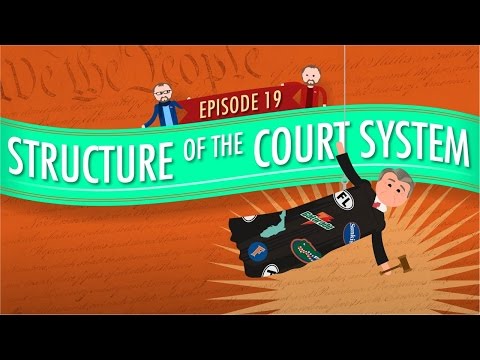
Welcome to this informative article on understanding the authority and jurisdiction of a special prosecutor in the United States legal system. It is important to note that while we aim to provide you with a comprehensive overview, it is always advisable to cross-reference the information with other reliable sources or seek guidance from legal professionals.
Now, let us delve into the fascinating world of special prosecutors and their role within the US legal framework. A special prosecutor is an attorney appointed to investigate and, if necessary, prosecute cases that involve potentially sensitive or high-profile matters. They are tasked with ensuring impartiality and fairness in the pursuit of justice.
The appointment of a special prosecutor typically occurs when there is a perceived conflict of interest or potential bias within the traditional channels of law enforcement. This impartiality is crucial to maintain public trust in the legal system and ensure that justice is served.
📋 Content in this article
A special prosecutor’s authority and jurisdiction arise from various sources, including federal and state laws, executive orders, or the discretion of the Attorney General. This authority grants them investigative powers comparable to those of regular prosecutors, such as the ability to issue subpoenas, impanel grand juries, and file charges.
The scope of a special prosecutor’s jurisdiction can vary widely depending on the specific case entrusted to them. They may be tasked with investigating allegations of public corruption, election interference, obstruction of justice, or other serious offenses involving government officials or entities.
It is essential to understand that a special prosecutor operates independently from the traditional chain of command within the Department of Justice or other law enforcement agencies. This independence ensures that they can carry out their duties objectively and without undue influence.
While a special prosecutor’s appointment often garners significant media attention and public scrutiny, it is crucial to remember that their role is not one of permanent authority. Once their investigation is complete, they submit their findings to the appropriate authority, such as the Attorney General or a designated oversight body, for review and further action.
Understanding the Scope and Authority of a Special Prosecutor in US Law
Understanding the Scope and Authority of a Special Prosecutor in US Law
In the United States legal system, the role of a special prosecutor is crucial in investigating and prosecuting cases of alleged wrongdoing by public officials or organizations. Special prosecutors are appointed to handle cases that may present conflicts of interest or require an independent investigation. To fully comprehend the authority and jurisdiction of a special prosecutor, it is important to understand their scope of power and the legal framework within which they operate.
Understanding the Role of a Special Prosecutor in the United States
Understanding the Authority and Jurisdiction of a Special Prosecutor in the United States Legal System
In the United States legal system, a special prosecutor is an independent attorney appointed to investigate and, if necessary, prosecute cases related to government corruption, high-profile crimes, or conflicts of interest involving public officials. The role of a special prosecutor is crucial in ensuring transparency, accountability, and the rule of law.
The Authority of a Special Prosecutor
When appointed, a special prosecutor is granted certain powers and authority to carry out their duties effectively. These powers typically include the ability to:
The Jurisdiction of a Special Prosecutor
The jurisdiction of a special prosecutor is typically defined by the scope of their appointment. This can vary depending on the specific case or situation. Special prosecutors are generally appointed at either the federal or state level and are given jurisdiction over specific matters.
For example, a special prosecutor may be appointed to investigate potential election fraud during a national election.
Understanding the Authority and Jurisdiction of a Special Prosecutor in the United States Legal System
In the United States legal system, a special prosecutor plays a crucial role in investigating and prosecuting cases that involve potential conflicts of interest or cases of significant public interest. It is essential for individuals to stay current on this topic, as it directly affects the administration of justice and the protection of public interests. However, it is important to note that the information provided in this article should be verified and cross-referenced to ensure its accuracy.
A special prosecutor is an attorney appointed to handle specific cases that require impartiality and independence from regular law enforcement agencies or government officials. The appointment of a special prosecutor is typically reserved for situations where there may be a conflict of interest or concerns about the fairness and objectivity of the investigation or prosecution.
The authority and jurisdiction of a special prosecutor vary depending on the specific circumstances and governing laws. The appointment of a special prosecutor can be made at the federal level, by the President or the Attorney General, or at the state level, by the state’s governor or attorney general.
Authority: Once appointed, a special prosecutor is granted the authority to conduct investigations and bring criminal charges against individuals or entities involved in the case. This authority is derived from the laws and regulations that govern the jurisdiction in which the investigation takes place. It is important to note that a special prosecutor’s authority is limited to the specific case for which they are appointed and does not extend to general law enforcement duties.
Jurisdiction: A special prosecutor’s jurisdiction refers to the geographical area or legal boundaries within which they have the authority to conduct investigations and prosecutions. The jurisdiction of a special prosecutor may be limited to a particular city, county, state, or even extend nationwide depending on the nature of the case and the applicable laws.
